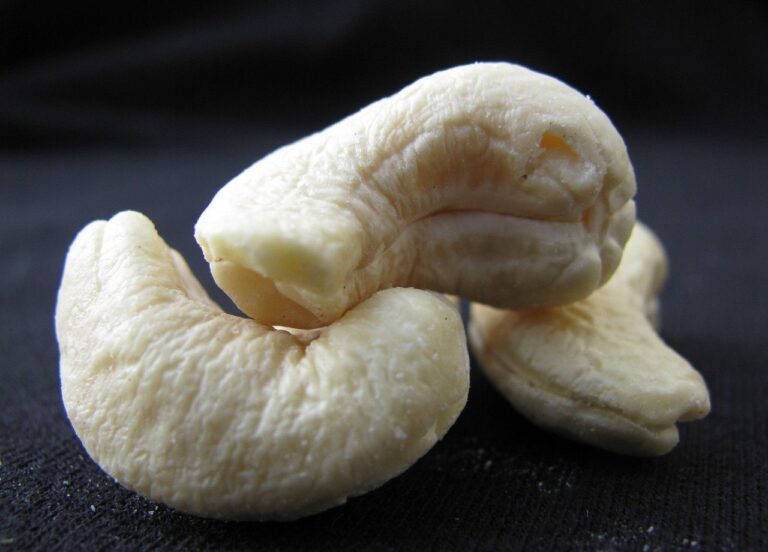The Role of Nutrition in Immune Function: Supporting the Body’s Defense System
The immune system is a complex network of cells, tissues, and organs that work together to defend the body against harmful pathogens such as viruses, bacteria, and parasites. Its primary role is to identify and eliminate these invaders, thus preventing illness and maintaining overall health.
One key aspect of the immune system is its ability to distinguish between the body’s own cells and foreign substances. When a pathogen is detected, the immune response is triggered, leading to the production of antibodies and the activation of various immune cells that work together to neutralize the threat. This intricate defense mechanism is essential for protecting the body from infections and diseases.
Understanding the Immune System
The immune system is a complex network of cells, tissues, and organs working together to defend the body against harmful pathogens and foreign invaders. Its primary function is to recognize and eliminate anything that may pose a threat to the body’s health and well-being. Various components of the immune system, such as white blood cells, antibodies, and the lymphatic system, play crucial roles in this defense mechanism.
When the immune system detects a threat, it responds by initiating a series of actions to neutralize and destroy the invader. This response can manifest in various ways, including inflammation, fever, and the production of specific antibodies targeted at the offending pathogen. The immune system also possesses memory cells that allow it to remember past encounters with pathogens, enabling a quicker and more effective response upon subsequent exposure. This sophisticated system works tirelessly to keep the body protected and maintain overall health and vitality.
Nutrients Essential for Immune Health
Nutrients play a crucial role in supporting a healthy immune system. Among these, vitamin C is known for its antioxidant properties and its ability to enhance the function of various immune cells. Found in fruits and vegetables like oranges and bell peppers, vitamin C helps boost the body’s defense system against pathogens.
In addition to vitamin C, vitamin D is another essential nutrient for immune health. Often referred to as the “sunshine vitamin,” vitamin D is produced by the body when exposed to sunlight. It plays a key role in regulating the immune response and helps in the production of antimicrobial proteins that combat infections. Including vitamin D-rich foods like fatty fish, egg yolks, and fortified dairy products in your diet can contribute to a strong and resilient immune system.
The Impact of Vitamin C on Immune Function
Vitamin C is a powerful antioxidant that plays a key role in supporting the immune system. It helps stimulate the production of white blood cells, which are essential for fighting off infections and diseases. In addition, vitamin C aids in the production of antibodies, proteins that recognize and neutralize harmful pathogens, helping the body’s defense system to function effectively.
Furthermore, vitamin C is involved in the process of collagen production, which is crucial for maintaining the integrity of skin and mucous membranes that act as barriers against pathogens. Studies have shown that vitamin C can enhance the function of phagocytes, cells that engulf and digest harmful microorganisms. By supporting various immune functions, vitamin C helps the body to mount a more robust defense against invaders, ultimately promoting overall health and well-being.
The Role of Vitamin D in Supporting Immunity
Vitamin D plays a crucial role in supporting the immune system by regulating the body’s defense mechanisms. It helps the immune cells function optimally, contributing to the body’s ability to fight off infections and diseases. Low levels of vitamin D have been associated with increased susceptibility to infections and a weakened immune response.
Research suggests that vitamin D may also help reduce inflammation in the body, which is a key factor in the immune system’s ability to function effectively. By promoting a balanced immune response and enhancing the body’s defense mechanisms, vitamin D effectively supports overall immune health. Adequate levels of vitamin D are essential for maintaining a robust immune system and promoting optimal health and well-being.
How Zinc Supports the Body’s Defense System
Zinc is a vital mineral that plays a key role in supporting the body’s defense system. It is involved in various aspects of immune function, including the development and functioning of immune cells. Zinc is essential for the proper functioning of white blood cells, which are crucial for fighting off infections and keeping the body healthy.
In addition to supporting immune cell function, zinc also helps regulate inflammation in the body. Inflammation is a natural process that occurs in response to infection or injury, but when it becomes chronic, it can have negative effects on the immune system. Zinc helps to balance the immune response by regulating the production of cytokines, which are signaling molecules that play a role in inflammation. Adequate levels of zinc are necessary to ensure a healthy immune response and overall well-being.
The Importance of Omega-3 Fatty Acids for Immune Health
Omega-3 fatty acids have gained recognition for their essential role in supporting immune health. These fatty acids, commonly found in fatty fish like salmon and mackerel, as well as in plant sources such as flaxseeds and walnuts, play a crucial part in reducing inflammation in the body. Studies have shown that omega-3 fatty acids can help regulate the immune response by influencing the activity of immune cells and reducing the production of inflammatory molecules.
Moreover, omega-3 fatty acids are known to enhance the overall function of immune cells, improving their ability to defend the body against harmful pathogens. By incorporating foods rich in these beneficial fats into your diet, you can potentially boost your immune system’s resilience and ability to ward off infections. Additionally, omega-3 fatty acids have been linked to a reduced risk of chronic inflammatory conditions, further underlining their importance for maintaining optimal immune function.
Probiotics and Their Effect on Immunity
Probiotics are live bacteria and yeasts that are beneficial for our digestive system. These “good” bacteria help maintain a healthy balance in the gut microbiome, which plays a crucial role in supporting our overall immune function. Research suggests that a diverse and flourishing gut flora can help regulate our immune response, reducing the risk of infections and inflammations.
In addition to enhancing gut health, probiotics also have a direct impact on our immune system. By stimulating the production of antibodies and aiding in the development of immune cells, probiotics can strengthen our body’s defense mechanism against harmful pathogens. Incorporating probiotic-rich foods such as yogurt, kefir, sauerkraut, and kimchi into our diet can be a simple yet effective way to support our immune health.
Antioxidants and Their Role in Boosting the Immune System
Antioxidants are crucial players in supporting the immune system’s function. These powerful compounds help combat free radicals that can damage cells and weaken immune responses. By neutralizing these harmful molecules, antioxidants such as vitamins C and E, beta-carotene, and selenium contribute to a well-functioning immune system.
Including a variety of antioxidant-rich foods in your diet, such as fruits, vegetables, nuts, and seeds, can provide your body with the necessary tools to fend off illnesses and infections. Additionally, a diet rich in antioxidants can help reduce inflammation and support overall health. Ensuring a colorful plate filled with a diverse range of nutrients can go a long way in boosting your immune function and optimizing your body’s defense mechanisms.
Balanced Diet Recommendations for Optimal Immune Function
To support optimal immune function, it is essential to maintain a balanced diet that includes a variety of nutrient-rich foods. Incorporating a wide range of fruits and vegetables into your daily meals can provide a plethora of vitamins, minerals, and antioxidants that are vital for supporting a strong immune system. Additionally, including lean proteins such as poultry, fish, beans, and nuts can help ensure that your body has an adequate supply of amino acids to support immune cell function.
Whole grains, such as brown rice, quinoa, and whole wheat bread, are excellent sources of fiber and essential nutrients that can aid in maintaining a healthy gut microbiome, which plays a crucial role in immune function. Ensuring adequate hydration by drinking plenty of water throughout the day is also important for supporting immune health. By focusing on a diverse and balanced diet, you can provide your body with the necessary nutrients to help strengthen your immune system and protect against infections and illnesses.
What is the immune system and why is it important?
The immune system is the body’s defense mechanism against pathogens and infections. It plays a crucial role in keeping us healthy by fighting off harmful invaders.
What nutrients are essential for immune health?
Nutrients such as vitamin C, vitamin D, zinc, omega-3 fatty acids, probiotics, and antioxidants are essential for supporting immune function.
How does vitamin C impact immune function?
Vitamin C is a powerful antioxidant that helps boost the immune system by supporting the production of white blood cells, which are key players in the body’s defense system.
What role does vitamin D play in supporting immunity?
Vitamin D is important for regulating the immune response and promoting immune cell function. It also helps reduce the risk of infections and autoimmune diseases.
How does zinc support the body’s defense system?
Zinc is essential for maintaining a healthy immune system as it helps with the development and function of immune cells. It also plays a role in wound healing and reducing inflammation.
Why are omega-3 fatty acids important for immune health?
Omega-3 fatty acids have anti-inflammatory properties that help regulate the immune response and reduce inflammation. They also support the function of immune cells.
How do probiotics affect immunity?
Probiotics are beneficial bacteria that help maintain a healthy gut microbiome, which is essential for a strong immune system. They can improve immune function and reduce the risk of infections.
What is the role of antioxidants in boosting the immune system?
Antioxidants help protect the immune system from oxidative stress and damage, which can weaken immune function. They also support the body’s ability to fight off infections.
What are some balanced diet recommendations for optimal immune function?
A balanced diet that includes a variety of fruits, vegetables, whole grains, lean proteins, and healthy fats is key for supporting immune health. It’s important to consume a range of nutrients to help the immune system function optimally.







